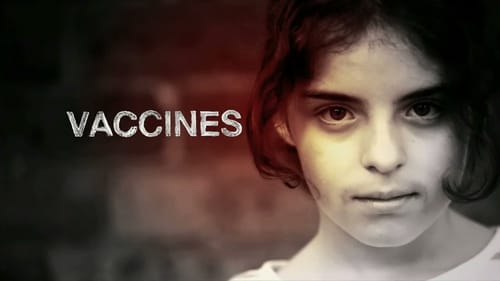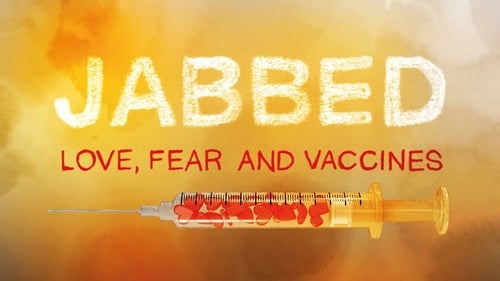Sonya Pemberton
Historia
Sonya Pemberton is an Australian film and television writer, producer and director.

Executive Producer
With Carbon in the news every day, you might think you know everything about her. But you’d be wrong. This spectacular and surprisingly unorthodox documentary reveals the paradoxical story of the element that builds all life, and yet may end it all. Narrated in first person by Sarah Snook (Succession), Carbon tells of her birth in the violent core of an exploding star and of turbulent sagas through the fabric of our evolving Earth. Accompanied by celebrated scientists, unique animations and a stunning orchestral score, Carbon reminds us of our humble participation in the most extraordinary story in the universe.

Producer
With Carbon in the news every day, you might think you know everything about her. But you’d be wrong. This spectacular and surprisingly unorthodox documentary reveals the paradoxical story of the element that builds all life, and yet may end it all. Narrated in first person by Sarah Snook (Succession), Carbon tells of her birth in the violent core of an exploding star and of turbulent sagas through the fabric of our evolving Earth. Accompanied by celebrated scientists, unique animations and a stunning orchestral score, Carbon reminds us of our humble participation in the most extraordinary story in the universe.

Consulting Producer
In the thick of a controversial war of ideas, two enlightening figures, Sam Harris, an atheist and a critic of religion, and Maajid Nawaz, an Islamist-turned-liberal activist, partake in an engaging dialogue on the state of Islam, its potential reform, the militant ideology of Islamism, and where all this lays in a secular world.

Executive Producer
Dr Derek Muller takes us on an epic adventure, a world-spanning investigation of vitamin science and history, asking how do we decide whether to take vitamin supplements, or not?

Writer
Dr Derek Muller takes us on an epic adventure, a world-spanning investigation of vitamin science and history, asking how do we decide whether to take vitamin supplements, or not?

Director
Dr Derek Muller takes us on an epic adventure, a world-spanning investigation of vitamin science and history, asking how do we decide whether to take vitamin supplements, or not?

Executive Producer
Diseases that were largely eradicated in the United States a generation ago—whooping cough, measles, mumps—are returning, in part because nervous parents are skipping their children's shots. NOVA's "Vaccines—Calling the Shots" takes viewers around the world to track epidemics, explore the science behind vaccinations, hear from parents wrestling with vaccine-related questions, and shed light on the risks of opting out.

Producer
Diseases that were largely eradicated in the United States a generation ago—whooping cough, measles, mumps—are returning, in part because nervous parents are skipping their children's shots. NOVA's "Vaccines—Calling the Shots" takes viewers around the world to track epidemics, explore the science behind vaccinations, hear from parents wrestling with vaccine-related questions, and shed light on the risks of opting out.

Writer
Diseases that were largely eradicated in the United States a generation ago—whooping cough, measles, mumps—are returning, in part because nervous parents are skipping their children's shots. NOVA's "Vaccines—Calling the Shots" takes viewers around the world to track epidemics, explore the science behind vaccinations, hear from parents wrestling with vaccine-related questions, and shed light on the risks of opting out.

Director
Diseases that were largely eradicated in the United States a generation ago—whooping cough, measles, mumps—are returning, in part because nervous parents are skipping their children's shots. NOVA's "Vaccines—Calling the Shots" takes viewers around the world to track epidemics, explore the science behind vaccinations, hear from parents wrestling with vaccine-related questions, and shed light on the risks of opting out.

Writer
Diseases that were largely eradicated forty years ago are returning. Across the world children are dying from preventable conditions, because nervous parents are skipping their children's vaccinations. Yet the stories of vaccine injury are frightening, with rare cases of people being seriously hurt by vaccines. This documentary looks at the growing trend of vaccine hesitancy around the world, exploring the reasons for complacency and concerns, and highlighting the impact of delaying or refusing immunisation.

Producer
Diseases that were largely eradicated forty years ago are returning. Across the world children are dying from preventable conditions, because nervous parents are skipping their children's vaccinations. Yet the stories of vaccine injury are frightening, with rare cases of people being seriously hurt by vaccines. This documentary looks at the growing trend of vaccine hesitancy around the world, exploring the reasons for complacency and concerns, and highlighting the impact of delaying or refusing immunisation.

Director
Diseases that were largely eradicated forty years ago are returning. Across the world children are dying from preventable conditions, because nervous parents are skipping their children's vaccinations. Yet the stories of vaccine injury are frightening, with rare cases of people being seriously hurt by vaccines. This documentary looks at the growing trend of vaccine hesitancy around the world, exploring the reasons for complacency and concerns, and highlighting the impact of delaying or refusing immunisation.

Executive Producer
Diseases that were largely eradicated forty years ago are returning. Across the world children are dying from preventable conditions, because nervous parents are skipping their children's vaccinations. Yet the stories of vaccine injury are frightening, with rare cases of people being seriously hurt by vaccines. This documentary looks at the growing trend of vaccine hesitancy around the world, exploring the reasons for complacency and concerns, and highlighting the impact of delaying or refusing immunisation.

Executive Producer
Astonishingly, science has uncovered the key to unlimited life – and a secret of endless youth. Deep in the DNA of a humble pond creature an Australian-born scientist co-discovered an 'immortalising' enzyme, a chemical catalyst that can keep cells young, forever. In 2009 this discovery was awarded the Nobel Prize for Medicine. But, this is no simple 'cure' for ageing. For the same enzyme that fuels endless youth, also fuels cancer. Immortal reveals the inner workings of this biological paradox and its remarkable impact on ageing, stress, disease and cancer.

Writer
Astonishingly, science has uncovered the key to unlimited life – and a secret of endless youth. Deep in the DNA of a humble pond creature an Australian-born scientist co-discovered an 'immortalising' enzyme, a chemical catalyst that can keep cells young, forever. In 2009 this discovery was awarded the Nobel Prize for Medicine. But, this is no simple 'cure' for ageing. For the same enzyme that fuels endless youth, also fuels cancer. Immortal reveals the inner workings of this biological paradox and its remarkable impact on ageing, stress, disease and cancer.

Director
Astonishingly, science has uncovered the key to unlimited life – and a secret of endless youth. Deep in the DNA of a humble pond creature an Australian-born scientist co-discovered an 'immortalising' enzyme, a chemical catalyst that can keep cells young, forever. In 2009 this discovery was awarded the Nobel Prize for Medicine. But, this is no simple 'cure' for ageing. For the same enzyme that fuels endless youth, also fuels cancer. Immortal reveals the inner workings of this biological paradox and its remarkable impact on ageing, stress, disease and cancer.

Executive Producer
One in three of us will get cancer at some stage in our lives. From the moment of diagnosis the common cry is "why me?" Now, across the planet, a select group of scientists is hunting cancer-causing infections. Startling new evidence is revealing that viruses and bacteria are triggering some of the biggest killers of our time. And, believe it or not, this is good news.

Writer
One in three of us will get cancer at some stage in our lives. From the moment of diagnosis the common cry is "why me?" Now, across the planet, a select group of scientists is hunting cancer-causing infections. Startling new evidence is revealing that viruses and bacteria are triggering some of the biggest killers of our time. And, believe it or not, this is good news.

Director
One in three of us will get cancer at some stage in our lives. From the moment of diagnosis the common cry is "why me?" Now, across the planet, a select group of scientists is hunting cancer-causing infections. Startling new evidence is revealing that viruses and bacteria are triggering some of the biggest killers of our time. And, believe it or not, this is good news.

Writer
A young Queensland geologist, Dr Unwins, has quite possibly made one of the most significant biological discoveries of the last 100 years. Ten times smaller than any known living creature, her so called nanobes could hold the key to the origin of life on earth. These tiny creatures appear to eat plastic, may have come from outer space and have been linked with cancer. In 1998, mysterious 'organisms' were found in petroleum drilling samples. These tiny entities survived for millions of years in solid rock, two kilometers deeper into the Earth's crust than any recorded life. When exposed to oxygen and nutrients, they grow, reproduce, organise to form colonies and contain the master molecules of life - DNA.

Director
A young Queensland geologist, Dr Unwins, has quite possibly made one of the most significant biological discoveries of the last 100 years. Ten times smaller than any known living creature, her so called nanobes could hold the key to the origin of life on earth. These tiny creatures appear to eat plastic, may have come from outer space and have been linked with cancer. In 1998, mysterious 'organisms' were found in petroleum drilling samples. These tiny entities survived for millions of years in solid rock, two kilometers deeper into the Earth's crust than any recorded life. When exposed to oxygen and nutrients, they grow, reproduce, organise to form colonies and contain the master molecules of life - DNA.





















